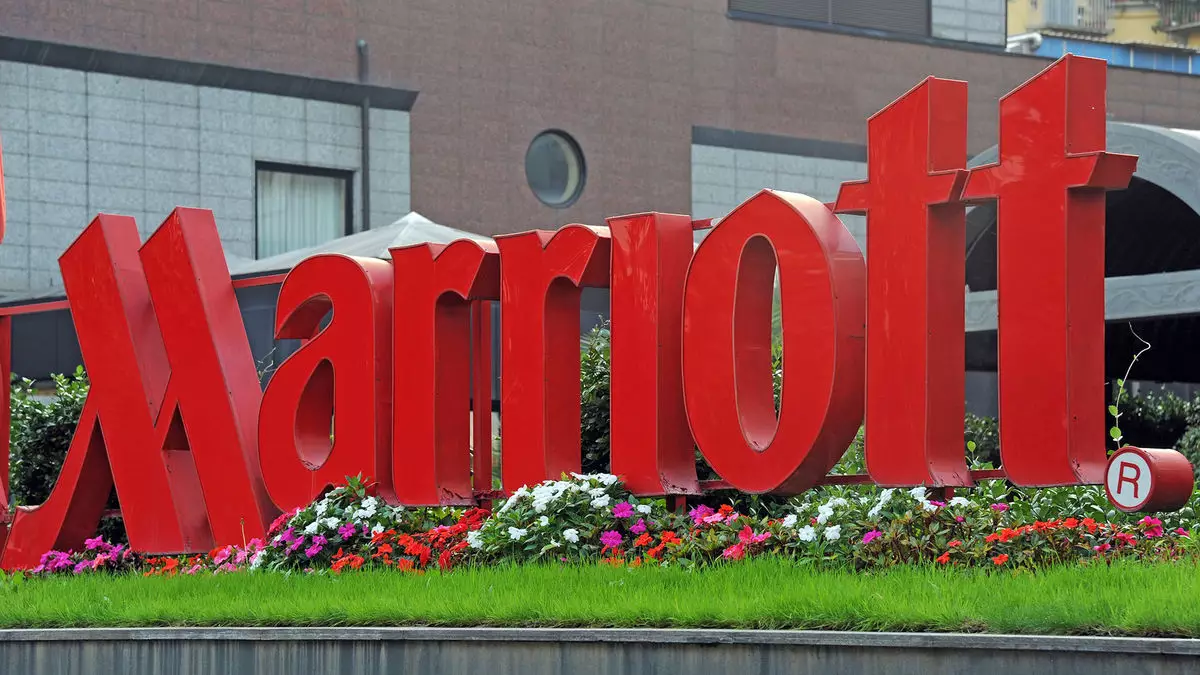The hospitality sector operates within a complex web of economic indicators and sociopolitical climates, and the recent quarterly report from Marriott International stands as a testament to this volatility. As the company navigates the fluctuations in revenue and occupancy rates, the looming U.S. presidential election casts a long shadow over its forecasts. Through examining the company’s performance and projected outcomes, we can uncover the interconnectedness of political events and corporate profitability.
Marriott’s third-quarter earnings reveal a dual narrative—both an optimism stemming from ongoing recovery from the pandemic and a cautionary tale tied to external political events. The company reported a modest revenue per available room (RevPAR) growth of over 2% in the U.S. and Canada, largely attributed to spikes in average daily rates (ADR). This indicates a resurgence in market activity as leisure and business travel gradually return to pre-pandemic levels. Notably, the luxury and full-service segments have outperformed select-service hotels, suggesting a shift in consumer spending toward higher-end options amid lifting pandemic restrictions.
Nevertheless, Marriott executives have signaled a potential downturn as the U.S. presidential election approaches. CFO Leeny Oberg outlined expectations for November, predicting a 3% dip in RevPAR, driven by diminished transient and group bookings. This forecast not only reflects the immediate impact of political uncertainties but also raises concerns regarding the long-term stability of the hospitality industry, particularly in the face of heightened consumer caution during election cycles.
The group segment has emerged as a key pillar of Marriott’s performance, showcasing 10% year-over-year growth in RevPAR for the second quarter in a row. President and CEO Anthony Capuano emphasized the company’s substantial advantage in convention hotel distribution, possessing nearly twice the room capacity of its closest competitors. Despite the potential short-term disruptions caused by the election, the projected 7% growth in group revenue for 2025 reflects a robust demand for group travel and event bookings.
However, this growth invigorated by a competitive edge is nuanced by external factors. The flat revenue returns for the fourth quarter raise questions about the sustainability of the group travel trend amidst looming uncertainties. Factors such as the public’s hesitation to commit to travel plans, driven by election-related anxieties, could stall momentum in a sector that thrives on predictability and large-scale participation.
While the North American market presents a mixed bag of performance, Marriott’s international markets have tracked positively. The company reported an impressive 5% increase in RevPAR outside the U.S., with Europe, the Middle East, and Africa (EMEA) shining particularly bright, alongside notable growth in Asia Pacific (excluding China). Yet, this rosy picture contrasts dramatically with Greater China, where RevPAR experienced an 8% decline, attributed to a confluence of economic pressures, weak domestic demand, and adverse weather conditions.
As businesses worldwide adapt to shifts in consumer habits, the ability to pivot and account for localized trends becomes paramount. For Marriott, understanding these subtleties not only aids strategic planning but is vital for mitigating risks posed by geopolitical dynamics.
In summation, Marriott’s third-quarter performance encapsulates both resilience and vulnerability within the hospitality domain. The overarching effects of the forthcoming U.S. presidential election illustrate how deeply intertwined political environments are with business success. As the company prepares for a potentially challenging fourth quarter, balancing optimism with caution will be essential. The hospitality sector, still grappling with residual pandemic impacts, must now contend with the added layer of political uncertainty. Only time will tell how these factors will converge to shape not just Marriott’s future, but the broader industry landscape.

